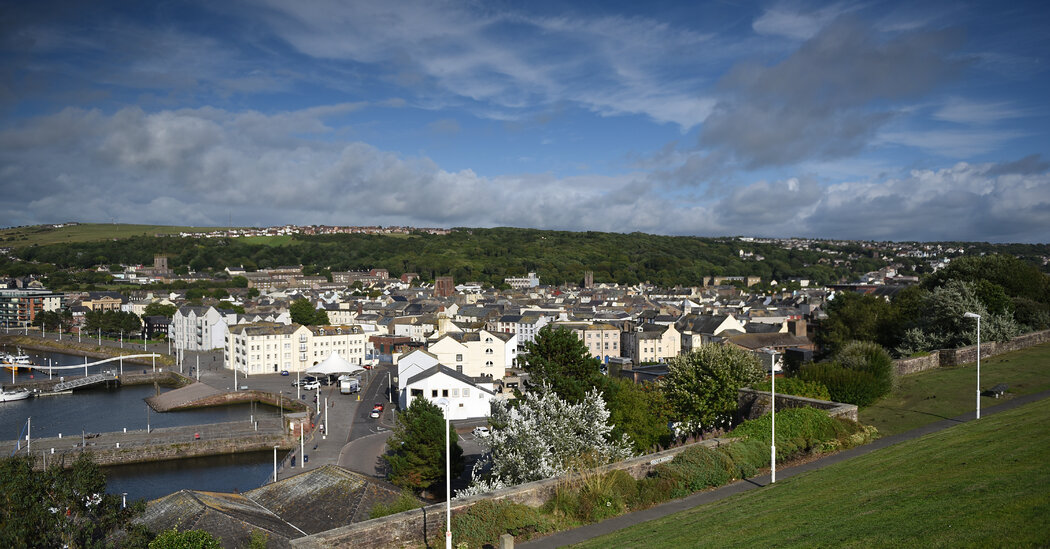
Britain Approves New Coal Mine Despite Climate Concerns
The British government approved on Wednesday the country’s first coal mine in decades, a project promoted as a source of new jobs but which has been criticized as a reversal of efforts to control climate change.
The mine, near Whitehaven on the coast of northwest England, would supply coal for the steel industry in Britain and abroad.
The long-delayed project had been caught up for years in competing pressures on successive Conservative Party-led British governments. The current prime minister, Rishi Sunak, recently spoke at the COP27 climate conference about the need to invest in renewable energy, yet he is also pushing to create jobs in areas of northern England that have elected Conservatives in hopes of bringing economic growth.
The proposal, by West Cumbria Mining, originally called for investing 160 million pounds, or $195 million, in a mine that would create more than 500 jobs. The coal would be used not in power plants, but instead in the making of steel, an industry still heavily reliant on coal.
The mine’s entrance and other facilities will be located on the site of a former chemical plant, while the mine itself will be mostly under the sea.
Understand the Political Situation in Britain
- A Political Test: Rishi Sunak, who took over as prime minister with the hope of restoring stability to a government in turmoil, is facing formidable political and economic challenges.
- Selling Austerity: With an elite pedigree and a privileged lifestyle, Mr. Sunak must now persuade ordinary Britons that they should support his government through a painful ordeal of tax increases and spending cuts.
- A Haunting Presence: Saddled with budget and cost-of-living crises, the British prime minister also has to deal with the outsize personality of Boris Johnson, his predecessor.
Critics have said that approving a new coal mine amid concerns about climate change would damage Britain’s reputation as a world leader on environmental issues. Once a major producer of coal that powered the Industrial Revolution, Britain’s coal output peaked in the early 20th century, and dropped more than 90 percent in the last decade.
The decision “sends entirely the wrong signal to other countries about the U.K.’s climate priorities,” said John Gummer, the chairman of Britain’s Climate Change Committee, a government-sponsored group that monitors the country’s progress on reducing emissions. “The U.K.’s hard-fought global influence on climate is diminished by today’s decision,” said Mr. Gummer, who is a former Conservative Party cabinet minister.
Kate Willshaw, a policy officer at Friends of the Lake District, an organization that works to preserve a neighboring scenic area, said she expected that local environmental groups would “launch a legal challenge” to the decision, which she called “a step backwards.”
Supporters, including local Conservative members of Parliament, have said the mine would create well-paying jobs and help lead a revival in the area, which has fared relatively poorly in recent decades as coal mines and other industrial facilities have closed.
“This is fantastic for my community and will give my area a huge economic boost,” said Mike Starkie, the mayor of Copeland, which includes the proposed mine site.
Supporters like Mr. Starkie have also said that as long as the world needs coal, Britain might as well benefit from supplying it. Mr. Starkie said that he expected work on the mine to begin within months.
Critics have said the economic stimulus would be short-lived because the use of coal in steel-making would eventually be phased out to avoid the carbon dioxide emissions it produces.
In a lengthy document on the approval of the mine, Michael Gove, a senior cabinet minister, said emissions from the project “would be relatively neutral and not significant.”
Mr. Gove, who is responsible for aiding the economies of less prosperous areas of Britain like Whitehaven, also said “the evidence suggests that there would still remain a market for the coal.”
West Cumbria Mining, which is backed by EMR Capital, a private equity firm based in Australia and Hong Kong, said in a statement:
“We look forward to taking the project to the next stage of delivery and jobs creation.”
